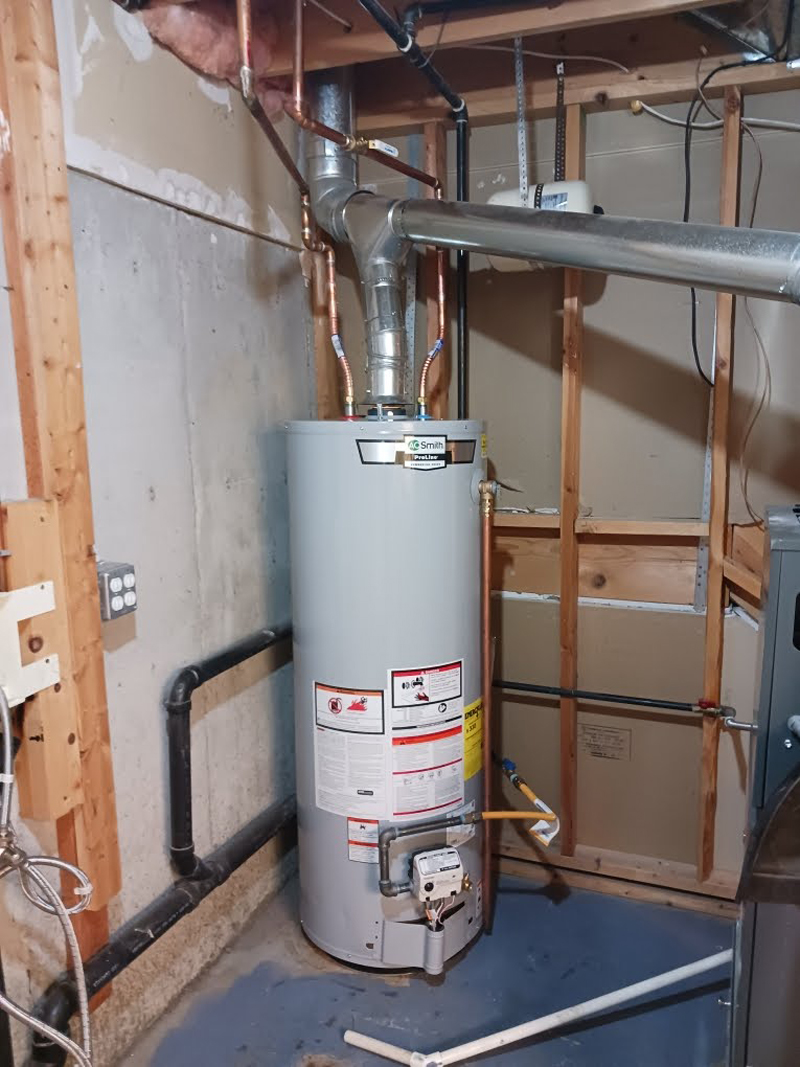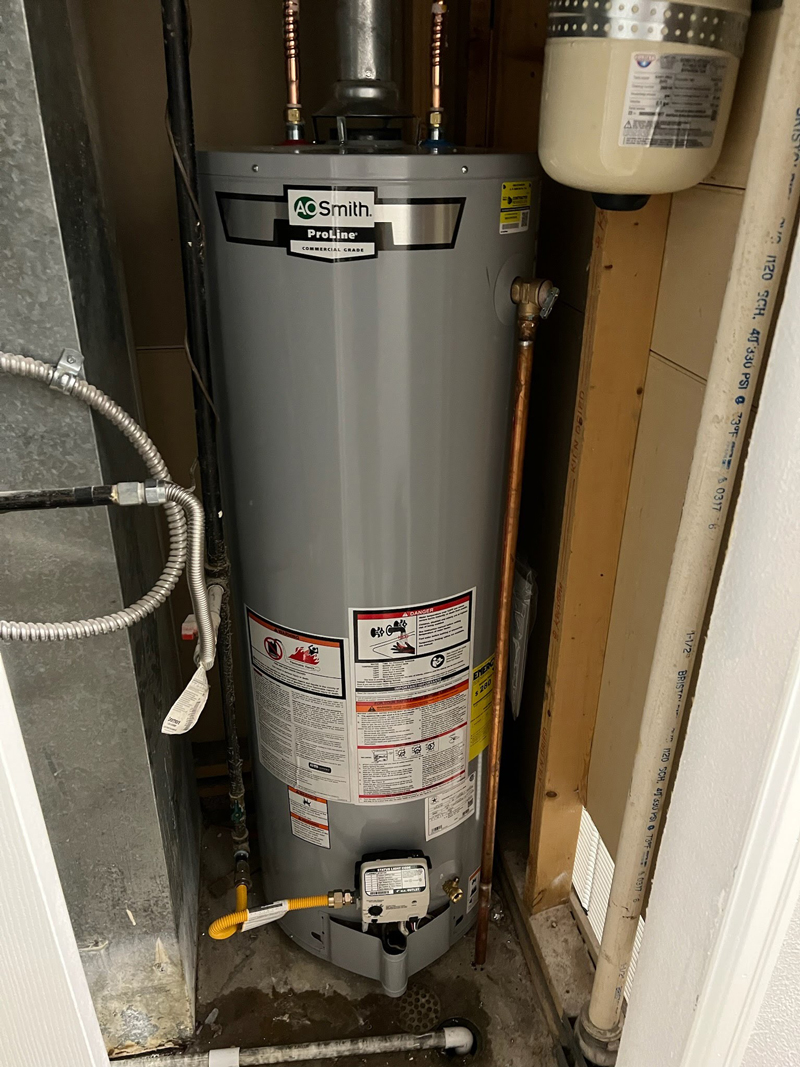Water Heaters
Do you have a water heater emergency? Is your hot water just not hot anymore? Our licensed technicians will come out quickly to replace your water heater with a new unit or service your existing water heater to get it working again properly.
Here are some signs that may help you determine if this is the time to invest in a professional-grade water heater installed by a certified technician from A Perfect Plumber.
- Your current water heater is at least 12 years old
- Rust-colored water is coming out of the taps or there is rusty buildup on top of the tank
- Your water is not getting hot at all
- You no longer have enough hot water at any one time to meet your needs
- Your unit makes cracking or popping noises when the water is heating
- Your tank is leaking


Types of water heaters we install include:
- Gas water heaters
- Electric water heaters
- Hybrid water heaters
- Heat pump water heaters
- Tankless water heater (Gas & Electric)
- Direct vent water heaters
- Side-arm water heaters
In addition to replacing worn out units, we also offer service plans that can maintain the efficiency and increase the longevity of your water heater. Regularly scheduled services can keep your water heater working safely and more efficiently while keeping your energy bills lower. We can set up a service plan where technicians will monitor the operation and structural integrity of your water heater so they’re better prepared to prevent problems that may arise if these issues are ignored.
What's included in servicing your water heater? Our technicians will:
- Clean the burner assembly
- Check the water shut-off valve
- Check the drain valve
- Check the gas/electrical supply
- Check the emergency gas shut-off
- Check the safety relief valve
- Check the draft hood and ventilation
- Check the flue piping
- Check for visible corrosion and stability of the tank base
- Drain water from the tank to flush out sediment (restrictions may apply).
Our technicians are trained to service all major brands of water heaters including:
- A.O. Smith
- Bradford White
- Rheem
- General Electric
- Amtrol Storage Tanks
- Superstor Ultra Storage Tanks
- State Water Heaters
- And more
We can help increase the life of your water heater and make sure it’s an asset for your comfort, not a liability to your home.
Your Benefit

Warranty protection

Increase longevity

Increase life of appliance
FAQ
Are drain pans under a water heater recommended?
In some locations sheet metal pans are required and in other situations they are highly recommended. Water heaters located in interior closets, on structural flooring, or on/above the main floor require pans to protect the house/building.
What is the average lifespan of a water heater?
The typical answer to this is between 8-12 years. When deciding on what repairs to consider for your water heater, it is always good to take the age into account. You would not typically want to make repairs to a water heater that is at its life expectancy as you may have to replace it sooner than later.
What does it mean when I do not have enough hot water?
If your water heater used to provide enough water, then it is likely that there is quite a bit of sediment building up or your dip tube is going bad. These issues can usually be fixed, but depending on the age of your water heater, it may be time to replace it.
What does it mean when I do not have any hot water?
This could be quite a few different things. The most common issue is your pilot light may have gone out. This is a simple thing to do and the instructions should be printed on the water heater.
Why does it take so long to get hot water at my tap or shower?
Waiting a long time at the faucet for hot water to arrive is usually due to the plumbing in the home. When the hot water leaves the tank of the water heater it has to travel through the piping to reach the faucet. If you have a ranch style home or a large home sometimes these Read More “plumbing runs” can be long and it takes a while for the hot water to arrive. Recirculation pump systems are a good solution to this problem.Read Less
Why does my water heater make a “rumbling” noise?
Having a noisy water heater is mostly a nuisance, but it could also mean a problem is present. As water heaters age sediment accumulates at the bottom of the tank, this is especially true if the water heater has not Read More been drained on a regular basis. The noise described as “rumbling” usually is the sound of expanding heated water escaping from sediment at the bottom of a tank. This situation is not dangerous, but it is a sign that the water heater has lost much of its efficiency. As sediment builds up, more and more heat is lost up the flue and less heat gets into your water. The overheating of the bottom of the tank also shortens the life of the tank and can lead to the failure of the water heater. Certain areas are notorious for “bad” water and in these areas flushing the water heater can extend its life and save on energy costs. However once sediment is allowed to build up and solidify (It is similar to coral) it can be almost impossible to remove from residential model heaters. To prevent this solidification a homeowner can flush the water heater periodically. If the sediment can be flushed out, it should fix the problem. If not it may be time to replace your water heater.Read Less
DON'T SEE WHAT YOU NEED?
While this is a very inclusive list of services, it’s not exhaustive. Our professionals are able to handle almost any plumbing project you have!

